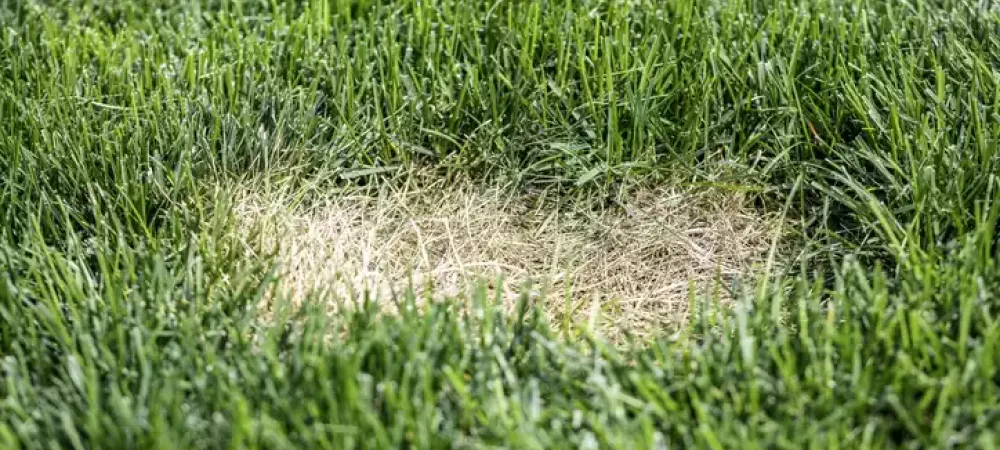Preventive Measures to Keep Your Lawn Disease-Free

A healthy, lush green lawn is the envy of the neighborhood, but it requires more than just watering and mowing. Lawn diseases can quickly turn your vibrant yard into a patchy eyesore. The good news is that with proactive measures, you can significantly reduce the risk of these diseases and keep your lawn looking its best.
Understanding Lawn Diseases
Lawn diseases are caused by various fungi, bacteria, and other pathogens that thrive in certain conditions. These conditions can include excessive moisture, poor drainage, compacted soil, incorrect mowing height, and inadequate fertilization. Recognizing the early signs of lawn disease is crucial for timely intervention.
Preventive Measures
Proper Watering Practices
- Watering deeply and infrequently encourages deep root growth, making your lawn more resilient to diseases.
- Water early in the morning to allow the grass blades to dry before evening, reducing the chances of fungal growth.
- Avoid overwatering, as it creates a moist environment that fosters disease development.
- Consider using a rain gauge or soil moisture meter to monitor the moisture levels in your lawn accurately.
Mowing Techniques
- Maintain a proper mowing height for your specific grass type. Cutting the grass too short weakens it and makes it susceptible to diseases.
- Keep your mower blades sharp. Dull blades tear the grass, creating entry points for pathogens.
- Remove grass clippings after mowing if they form a thick layer, as they can trap moisture and contribute to disease development.
- Soil Care and Aeration:
- Test your soil pH and adjust it if necessary. Most grasses thrive in slightly acidic soil (pH 6.0-7.0).
- Aerate your lawn annually to relieve soil compaction and improve water and nutrient penetration. This is particularly important for lawns with heavy clay soil or those subjected to high traffic.
Fertilization and Nutrition
- Apply fertilizer based on soil test results and your grass type's needs. A balanced fertilizer will provide essential nutrients for healthy growth and disease resistance.
- Avoid overfertilizing, as excess nitrogen can make your lawn more susceptible to certain diseases.
Disease-Resistant Grass Varieties
- Choose grass varieties that are known for their resistance to common diseases in your area. Consult with your local garden center or extension service for recommendations.
Thatch Management
- Monitor thatch buildup, a layer of dead grass and other organic matter that accumulates between the soil and grass blades. Excessive thatch can harbor disease pathogens.
- Dethatch your lawn if the thatch layer exceeds half an inch.
Early Detection and Treatment
- Regularly inspect your lawn for signs of disease, such as discolored patches, thinning grass, or unusual growth patterns.
- If you suspect a disease, consult with a lawn care professional or extension service for diagnosis and treatment recommendations. Early intervention is key to preventing the spread of diseases.
Additional Tips:
- Clean up fallen leaves and debris promptly to reduce moisture buildup and discourage disease development.
- Avoid walking on your lawn when it's wet, as this can spread disease spores.
- Maintain proper sanitation of your lawn equipment to prevent the transmission of diseases between lawns.
While these preventive measures are crucial for maintaining a healthy lawn, sometimes professional help is needed. If you're struggling with persistent lawn diseases or simply want to ensure your lawn's optimal health, consider reaching out to Grunder Green. Our team of lawn care experts can diagnose any issues, recommend tailored solutions, and implement effective treatments to restore your lawn's vitality. With Grunder Green, you can rest assured that your lawn is in the best hands, and we'll work diligently to keep it disease-free and looking its best year-round. Contact us today for a free consultation, and let us help you achieve the lawn of your dreams.
Resources:
- The Lawn Institute: https://www.thelawninstitute.org/
- University of Maryland Extension: https://extension.umd.edu/
- National Association of Landscape Professionals: https://www.landscapeprofessionals.org/